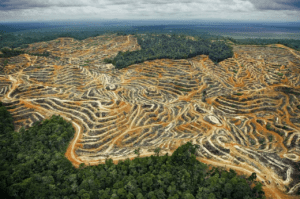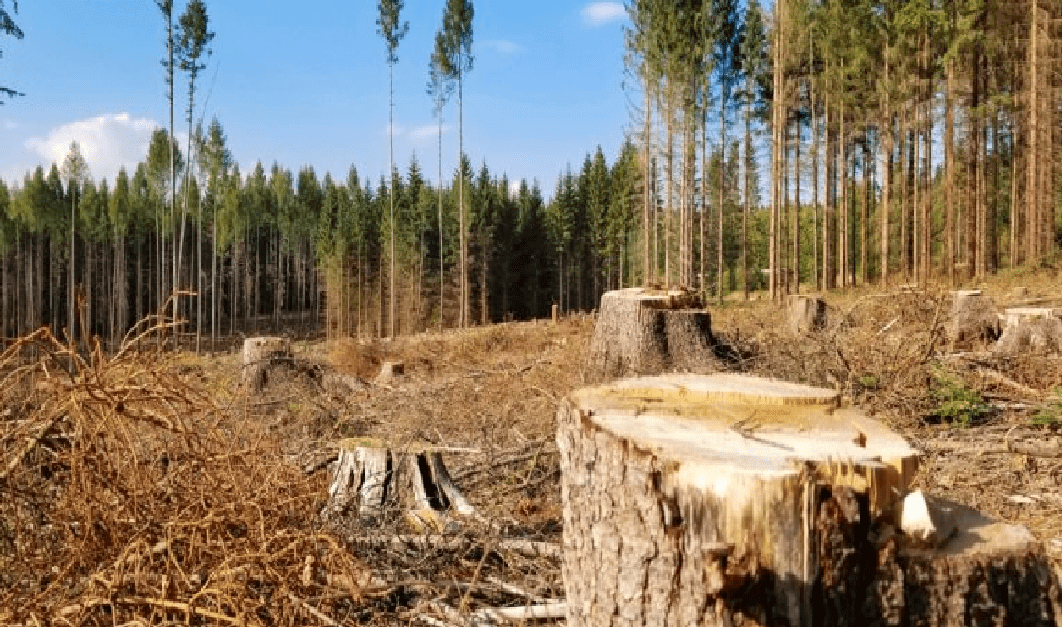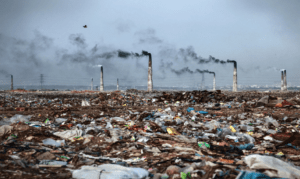
Introduction
The depletion of natural resources is indeed a critical global crisis that the Earth is currently facing. Human greed and mismanagement have led to the alarming rate at which these resources are being exhausted.
Previously considered unlimited, these resources are now being consumed at a faster pace than they can be replenished.
This resource overconsumption has taken us to the point where immediate action is required to avoid severe ecological, social, and economic consequences. The consequences of rapid resource depletion are far-reaching and interconnected.
Natural resource depletion causes problems such as environmental degradation, habitat loss, climate change, land degradation, and water scarcity, to name a few.
The objective of the article is to attract readers’ attention to the gravity of the situation. It explores the causes behind the depletion of natural resources, the consequences that follow, and potential solutions to address this issue.
What is the depletion of natural resources?
The principle behind resource depletion is that a resource’s value is based on how easily it can be accessed in the natural environment.
Many of the resources that were formerly easily accessible to man are depleting every day. The US Geological Survey (USGS) estimated that there were around 3 trillion barrels of crude oil in the earth’s crust at one time.
The 56th OPEC Annual Statistical Bulletin (ASB) estimates that there are 1548.65 billion barrels of crude oil in the world’s reserves.
Due to the low price of crude oil today, we are beginning to focus more on renewable sources as a substitute for crude oil.
The removal of essential elements from the planet is known as the depletion of natural resources. Because nature created them, these chemicals are natural. They are created by natural processes without human intervention.
A decline in the quantity and quality of natural resources is another way to describe the depletion of natural resources. While some of these natural resources may be replenished, others cannot.
Renewable resources include things like sunlight, geothermal heat, wind, fresh water, wood, latex, guano, and nutrients.
They might regenerate more quickly in nature than they can be consumed. Others, like coal, crude oil, minerals, aquifers, etc., are non-renewable. This is because of their extremely slow pace of replenishment as compared to their rate of consumption.
When resources are used in a way that causes their replenishment rate to be lower than their rate of use, the resources are depleted.
A major environmental issue is the depletion of natural resources. Hence, the concept of sustainability is rejected.
What Happens to Exhausted Natural Resources?
Natural resources are products, services, and materials that come from the environment. Freshwater, air, and soil are examples of single-entity natural resources.
Ores, elements, and the majority of energy sources are examples of raw materials that must be processed further to become resources.
Depletion of Natural resources results in the rapid loss of both quantity and quality. With non-renewable energy sources, this is normal. Resources found only sometimes or require millions of years to produce.
An oil well, that was formerly operational, dries up as a result of the depletion of natural resources, such as crude oil. The well will then either be utilized to dispose of wastewater or be refilled with water.
In the case of air as one of the natural resources, eventually, other gases (usually toxic) will replace the shortage of air in the atmosphere if air supplies deplete. It may also indicate a drop in the concentration of one or more essential gases.
The Depletion of Natural Resources in India
1. The Management of Natural Resources in India
The management of natural resources is a crucial component of any nation’s economic development.
In Indian settings, this is even more crucial because it is possible to produce enough food to feed the increased population while wisely utilizing the nation’s scarce natural resources.
Due to the ongoing degradation of its natural resources, India is currently experiencing an ecological catastrophe.
2. Challenges in Natural Resource Management
By 2025, the country is anticipated to overtake China as the world’s most populous country. Natural resources are in jeopardy as a result of the rapidly increasing Indian population and ongoing overexploitation of land and water resources.
Energy, metals, coal, non-fuel materials, and non-metallic materials are all becoming more and more scarce. There are a lot of worries about how much more often fuels are being used to satisfy human needs.
A sufficient amount of oil is annually purchased from Middle Eastern nations, which are important sources of petroleum.
Despite having access to an abundance of resources, emerging nations like India nevertheless have to import a large portion of them from other nations.
Environmental pollution is another issue. People in India’s rural areas lack access to clean water. 163 million Indians do not have access to clean drinking water as of right now.
3. Ecological Impacts and Conservation Measures in India
Natural resources are distributed unevenly across many parts of the nation. Natural resources must therefore be used with extreme caution for maximum effect, and they must be conserved.
In India, 146.82 lakh hectares of land have been impacted by soil, water, and air erosion in addition to other complicated issues including alkalinity/salinity and soil acidity.
Moreover, improper chemical fertilizer application has had a negative impact on soil fertility and minerals. Drought and flooding are affecting many areas of our nation.
Rain is necessary for agriculture due to the vast terrain of the nation. Rainwater does not get absorbed into the soil in many places because of severe deforestation and soil erosion. Moreover, groundwater that can be used for agriculture and other purposes is being used.
Instances of the Depletion of Natural Resources
1. lowering the natural reserve’s crude oil holdings
Depletion is unavoidable when a natural resource’s demand outweighs its availability.
It is easily possible to find examples of how our usage of natural resources is depleting them. Consider the natural resource crude oil as an illustration.
The reduction in crude oil stocks over time has already been mentioned. Nations like Nigeria, which previously relied solely on crude oil for all of their domestic revenue, are thinking about diversifying their economic sources.
2. decreasing Amazonian forest resources due to element depletion
The loss of trees and forest resources, such as the Amazon rainforest, is another instance of how natural resources are being depleted.
The Amazon is the largest rainforest in the world, and it has a variety of ecosystems and plant life, including savannahs, deciduous woods, seasonal forests, and rainforests.
The Amazon basin spans portions of eight South American nations, including French Guiana, a department of France, as well as Brazil, Bolivia, Peru, Ecuador, Colombia, Venezuela, Guyana, and Suriname.
With the present rate of deforestation, the Amazon will be 27 percent treeless by 2030, having already lost 17 percent of its forests.
3. shortages of drinking fresh water
Another resource that is running out is fresh water. Just 2.5% of the water on earth is made up of it. According to the Food and Agricultural Organization of the United Nations, 1.8 billion people would lack access to clean drinking water by 2025.
4. reduction in the natural gas supply
The gas that is located on top of oil reservoirs is known as natural gas. The source of energy is this. According to an estimate from 2010, our stockpile would keep us going for around 58.6 years at the current rate of global production.\
5. decrease in aquatic species
Fish populations in the water have decreased. All fishermen will concur with this. Due to overfishing, several marine species, like tuna, are on the verge of extinction.
What about our coral reefs, which benefit the ecology in so many ways? Around 46% of coral reefs still exist, according to data published by World Counts.
6. Phosphorus struggles for existence
There is a shortage of the element phosphorus. If no new phosphorus reserves are found, the element may run out in 50 to 100 years, according to reports from the Global Phosphorus Research Initiative.
A crucial component for plant growth is phosphorus. This serves as an organic fertilizer. Consider a phosphorus-free environment.
In small amounts, elements like scandium and terbium are used all over the world.
It is the primary component used in the production of wind turbines, electronic circuits for smartphones, and magnets, among other things. Ninety-seven percent of these things are dumped in China.
The causes of the depletion of natural resources
Natural or man-made factors may be to blame for the depletion of natural resources. This activity accelerates the rate at which natural resources are used.
Overpopulation, subpar farming methods, tree-cutting, mining, and exploration are a few of these factors, as are the expansion of industry and technology, excessive consumption, and waste.
1. Overpopulation
The main cause of the depletion of natural resources is this. From one billion to eight billion people, the world’s population has increased.
The issue with population growth is that it raises the demand for natural resources. Resources will be used up more quickly as more people consume them.
2. Agriculture
Forest resources are depleted as a result of agriculture. Large areas of forest are cut down to make way for agricultural land, which is the primary source of deforestation.
The requirement for enough food to feed this expanding population grows daily, along with our population. Large machines used in mechanized agriculture also damage the soil surface.
3. Mining operations:
Due to mining, we are “promoting” the the depletion of natural resources, including coal, crude oil, gold, and other mineral ores. Coal is still used as a natural resource to run trains and industry.
Crude oil serves as the foundation for the production of petroleum products. Ores like iron and tin are used as raw materials to produce roofing sheets, and they are also used to build metal components for tools, machines, utensils, construction materials, and other products.
Mining is used to remove these minerals from the earth’s crust. Intensive and continuous mining depletes mineral reserves and damages the local ecosystem.
4. Pollution
Pollution is the term used to describe the entry of foreign solid, liquid, and gaseous pollutants into the atmosphere, water, and terrestrial environments. Pollution damages the state of these environments. If the waste is correctly disposed of, it won’t enter the ecosystem and won’t pollute it.
5. Industrialization
The demand for products and services to meet human needs has given rise to numerous industries. The power-generating, textile, hotel, agricultural, beverage, furniture, shoe, and jewelry industries all require natural resources. As these sectors expand, more natural resources will be used.
Moreover, industrial operations pollute the air, waterways, and land by releasing gases, sewage, and solid waste into the environment. Thus the depletion of natural resources occurs.
6. Wasteful habits
People’s wasteful habits accelerate the depletion of natural resources, worsening the worldwide problem we are currently facing. A culture of overconsumption and disregard for the environment has become deeply embedded in our modern society.
Excessive energy usage, poor eating practices, and unrestricted consumerism all contribute to the accelerated depletion of natural resources which are already limited.
Effects of Depletion of Natural Resources
According to scientists, acts and reactions are opposite and equal. The depletion of natural resources has an effect on both humans and the region of the environment where these resources are situated.
The repercussions of natural resource depletion include air pollution, biodiversity loss and possibly species extinction, water shortages, mineral resource depletion, loss of forest cover, global warming, health problems, and economic decline.
Here are a few outcomes of natural resource depletion:
1. Health impact
As a result of deforestation, people and forest animals come into direct contact. These animals are carriers of a variety of diseases that are uncommon in humans. For example, these diseases include Lassa fever and Ebola.
The depletion of water resources will lead to a shortage of drinking water supplies. When this happens, people decide to drink contaminated water, putting themselves at risk of contracting diseases like cholera.
2. Financial impacts
The economy of countries whose economies heavily rely on natural resources suffers as those resources are depleted. For instance, crude oil production contributed a quarter of Nigeria’s economy between 1981 and 2018.
During the oil boom of the 1970s, its economy experienced beneficial shocks.
3. Global warming
Ozone depletion, a heightened greenhouse effect, and global warming are only a few examples of atmospheric problems caused by the introduction of new gases or gases at greater levels than they should into the atmosphere.
4. Deforestation
Deforestation causes an increase in carbon monoxide IV levels in the atmosphere. Methane, sulfur oxides, nitrogen, and other greenhouse gases are generated during the burning of fossil fuels.
5. Depletion of minerals and elements
If mining is done constantly for industrial purposes, mineral reserves will run out. These limited resources will soon run out if we continue to rely on them, putting us at risk because we won’t be able to extract enough of them to meet our needs.
6. A decline in the number of fish
Around one-third of the fish, population has been lost globally as a result of overfishing or severe depletion. This is problematic since fish contribute to the aquatic ecology in various ways in addition to being a source of food.
7. Soil erosion:
Solutions for the depletion of natural resources
In order to solve the issue of natural resource depletion, humanity can take a variety of actions. Some of them begin with our way of life, while others are the result of industrial, governmental, and even public endeavors.
1. An approach to living that promotes sustainability
Reusing and recycling trash and turning off well water tanks when they are full are examples of lifestyle choices that will lessen our reliance on natural resources.
Society as a whole must radically change how we behave as consumers. We should no longer discard previously useful items in favor of the newest and most popular items.
Other sustainable lifestyles that should be adopted as a strategy to lessen the depletion of crude oil supplies include cycling, short-distance walking, and using public transportation instead of private vehicles.
We can reduce our reliance on natural resources by altering the way we live.
2. The use of renewable energy
Using renewable energy sources in place of non-renewable ones is another strategy to combat resource depletion. Instead of using coal, kerosene, diesel, or gasoline to generate electricity, use solar, wind, or geothermal heat instead. Alternatives to fossil fuel-powered automobiles include electric vehicles.
3. The protection of water resources by law
The overfishing of aquatic fish must be stopped through legislative measures, such as fishing quotas. Management techniques like protected areas may be used to preserve freshwater.
Freshwater settings are divided into FPAS (Federal Priorities and Allocations System) in order to prevent intervention and let natural processes manage populations and ecosystems.
Among other things, the Magnuson-Stevens Fisheries Conservation and Management Act (MSA).
A number of countries must pass the Magnuson-Stevens Fisheries Conservation and Management Act (MSA) to stop the loss of water supplies.
4. Forest protection, reforestation, and planting.
One must conserve our forests and their resources rather than cut them down for any reason.
Afforestation is the planting of trees where none previously existed.
Deforestation can lead to the creation of new artificial forests.
This will benefit people because of our positive environmental impact.
Reforestation is the process of growing new trees in forests to replace those that have been harvested. One way for humans to decrease the impact of their actions on the environment is through reforestation.
The government can also develop and put into effect a forest policy to protect forest resources.
5. Using sustainable farming methods
Agriculture will always be a major contributor to the depletion of natural resources. This is because agriculture meets one of the fundamental requirements of all humans, which is food.
After this has been realized, sustainable farming methods must be implemented. These are methods that will lessen the strain that agriculture puts on the environment.
Hydroponics, aquaponics, permaculture, multi-crop farming, crop rotation, mixed farming, soil steaming, bio-intensive integrated pest management systems, etc. are a few of these sustainable farming techniques.
6. Education
People have a tendency to use our natural resources irresponsibly when they are unaware of the effects of their actions on them.
Everyone has to be informed of how our natural resources are currently being used. The general public has to be made aware of how our use affects our resources through the government and non-governmental organizations. Organizations like Friday For Tomorrow ought to be supported.
The general public has to be informed on a regular basis about the current state of our natural resources. Also, solutions to the issue of resource depletion should be made available to everyone, both individually and collectively. This will assist in addressing the issue of resource depletion.
This is due to the fact that raising awareness among the general public makes people feel more accountable for protecting their natural resources.
Conclusion
The depletion of natural resources is a serious problem that demands quick action. The Earth is in danger of running out of necessary resources as a result of causes like population growth, excessive consumption, and resource waste. Depletion of resources has far-reaching effects on the environment and human existence.
Adopting sustainable methods and alternative energy sources is essential to alleviating this situation. Reduce your dependency on non-renewable resources by switching to solar and wind electricity.
Responsible resource management and the use of sustainable development principles are also essential. It is necessary to take care of our immediate needs while also making sure that future generations have access to enough resources.
A fundamental mentality change is also necessary to address the depletion of natural resources. If we do not alter the way we think about how we use resources, life on Earth could end.
It is crucial to understand that we are to blame for the planet’s and its resources’ degradation. Maintaining the delicate balance of our environment requires protecting these resources rather than aggressively exploiting them.
The welfare of the world and its inhabitants is guaranteed by implementing sustainable practices, embracing alternative energy sources, and altering our attitudes toward resource consumption.
Come together, and let us do what has to be done to safeguard our finite natural resources for future generations.




[…] critical current environmental issue is the depletion of natural resources. Humans use so many natural resources that it would take nearly 1.5 Earth to meet all of our […]
[…] than they can be replenished, that occurs. Right now, that is a really serious problem. The rapid depletion of natural resources is one of the toughest environmental issues facing the […]
[…] 7 Natural Resource Depletion […]
[…] than they can be replenished, that occurs. Right now, that is a really serious problem. The rapid depletion of natural resources is one of the toughest environmental issues facing the […]
[…] Resource Depletion: The production of plastic requires fossil fuels, contributing to resource depletion and carbon emissions. Additionally, improper disposal and inefficient recycling of plastic waste […]
[…] Ecotourism provides economic incentives for local communities and governments to protect natural resources. […]
[…] agriculture to be sustainable, renewable energy is essential. It is dependent on renewable natural resources, delivering a steady supply of environmentally acceptable energy. Contrarily, the majority of […]
[…] Sustainable living helps protect the environment and reduce wastefulness. It means understanding how our lifestyle choices impact the world around us and finding ways for everyone to live better and lighter. By reducing our reliance on fossil fuels, minimizing our carbon footprint, and using less energy, water, gas, electricity, or any other resource to keep our home in balance, we can help reduce air pollution and conserve natural resources. […]
[…] ecologically friendly goods and services. Through encouraging sustainable practices and protecting natural resources, these technologies seek to lessen the detrimental effects of human activity on the […]
[…] homes use materials efficiently and often incorporate recycled or renewable materials. This reduces the depletion of natural resources and minimizes […]
thanks , I will surely check
[…] sustainable materials in building and manufacturing. By giving sustainable materials top priority, conserving natural resources, and cutting waste, LEED-certified buildings lower their environmental […]
[…] sustainable materials in building and manufacturing. By giving sustainable materials top priority, conserving natural resources, and cutting waste, LEED-certified buildings lower their environmental […]
[…] of Natural Resources: Unsustainable exploitation of natural resources leads to degradation within watersheds. This includes soil erosion, loss of vegetation, and […]